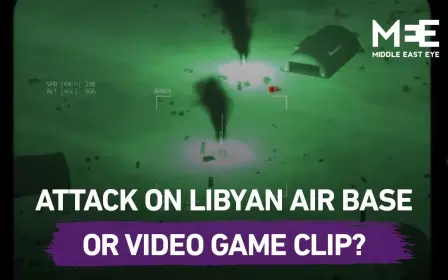Call of Duty: Video game publisher apologises for ‘disrespectful’ use of Quran

In one scene of the popular video game Call of Duty, torn pages of the Quran are seen scattered across the ground, and - in some clips - splattered with blood.
The scenes in Call of Duty: Vanguard’s Zombies, have caused uproar among many Muslims, who view the Quran as sacred and as the literal word of God, as revealed to the prophet Mohammed. Some have called the scenes Islamophobic.
Online, social media users called for a boycott of the game, using the hashtag #No_Call_of_Duty in Arabic and English. Many also shared screenshots of negative reviews that they had written for the game, encouraging others to do so in a bid to raise awareness on the insensitive use of the holy book.
Call of Duty Middle East issued a statement in Arabic on Twitter on Thursday, stating that they have removed the scenes from the game, apologising for the offence caused. The highly anticipated first-person shooter game was originally released on 5 November.
Stay informed with MEE's newsletters
Sign up to get the latest alerts, insights and analysis, starting with Turkey Unpacked
Translation: The game Call of Duty was designed for all users. There were scenes in the game which were offensive to Muslims which were shown last week, and they have now been removed. They should not have been included in the game. We apologise profusely. We are taking all measures to address this issue within the company in order to understand what happened and ensure it does not happen again.
Many have rejected the statement and called for the company to apologise on their main English account.
For Muslims, the Quran is highly revered, and treated with the utmost respect. Worshippers will not allow the holy book to touch the ground, for example.
Translation: Do this so their ratings go down
In 2009, gaming heavyweight Konami announced it would publish Six Days in Fallujah, a first-person shooter set during the second Battle of Fallujah - a gruelling struggle between American-led forces and Iraqi armed groups, which lasted six weeks in the winter of 2004.
This article is available in French on Middle East Eye French edition.
Middle East Eye delivers independent and unrivalled coverage and analysis of the Middle East, North Africa and beyond. To learn more about republishing this content and the associated fees, please fill out this form. More about MEE can be found here.




